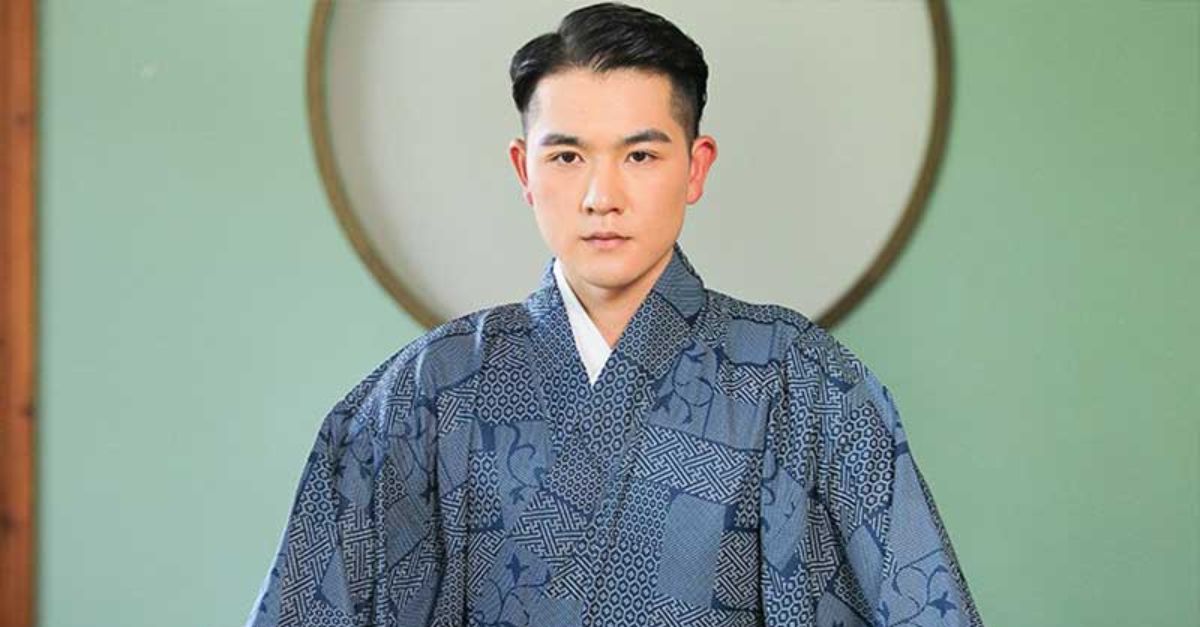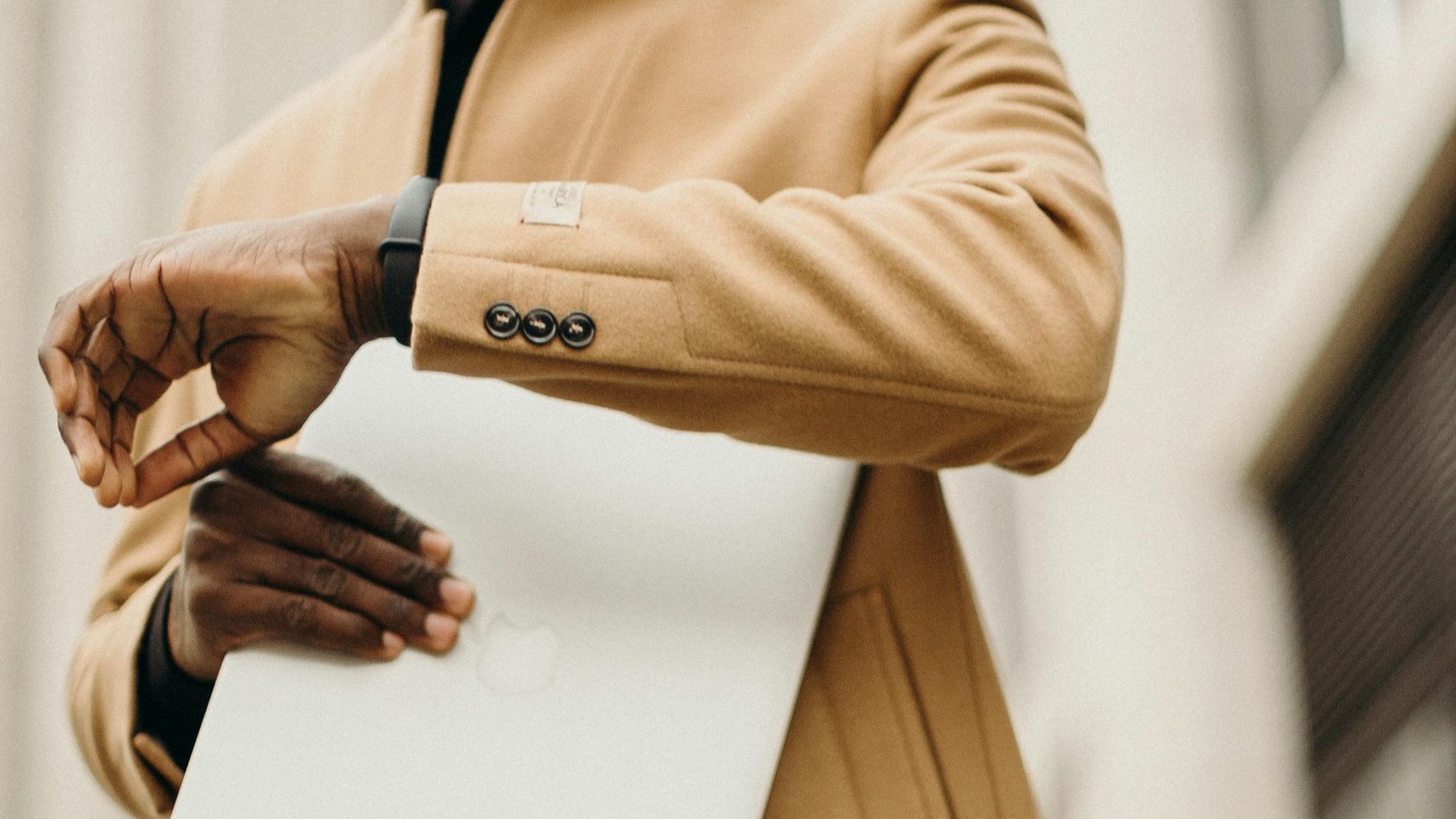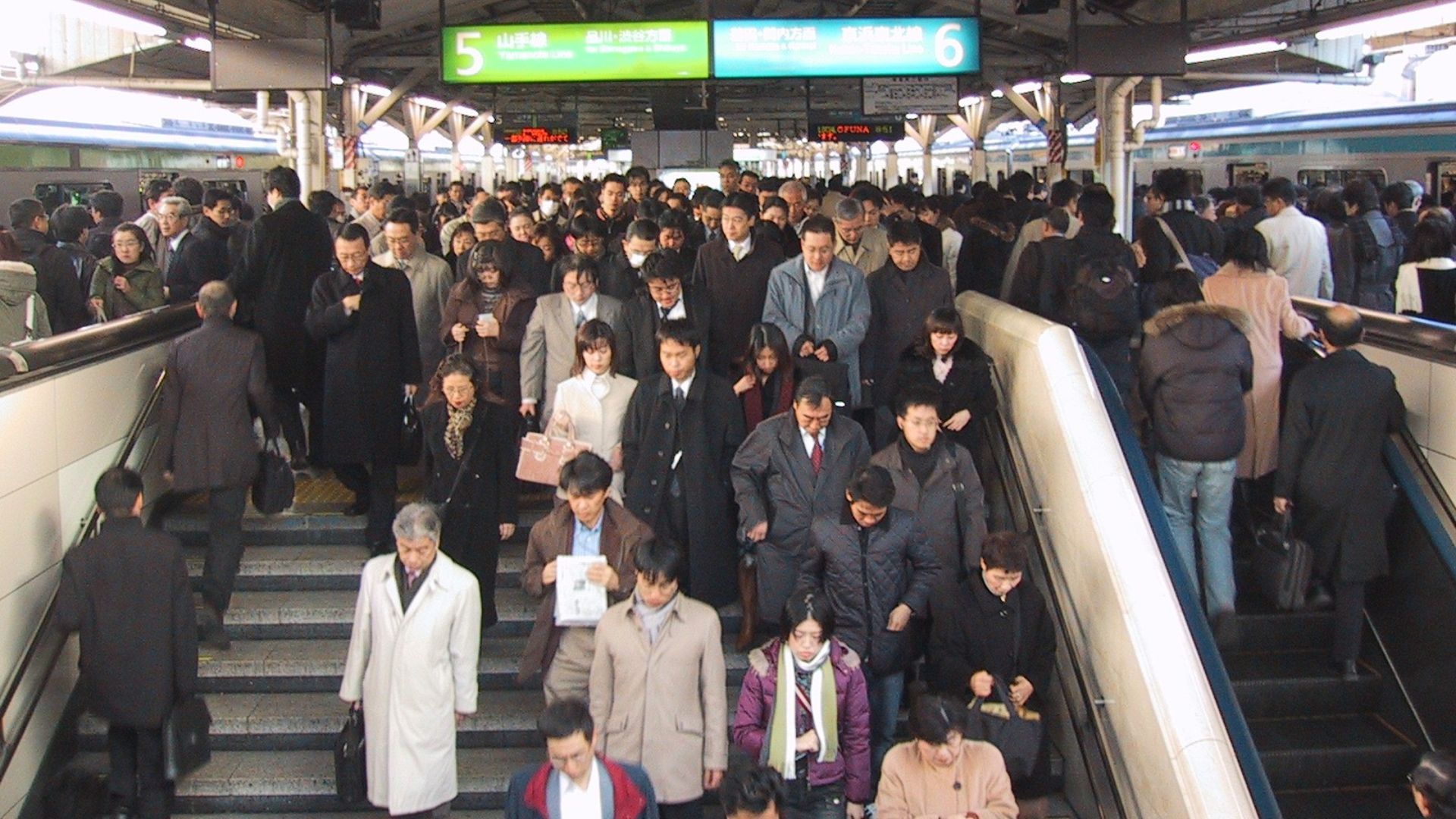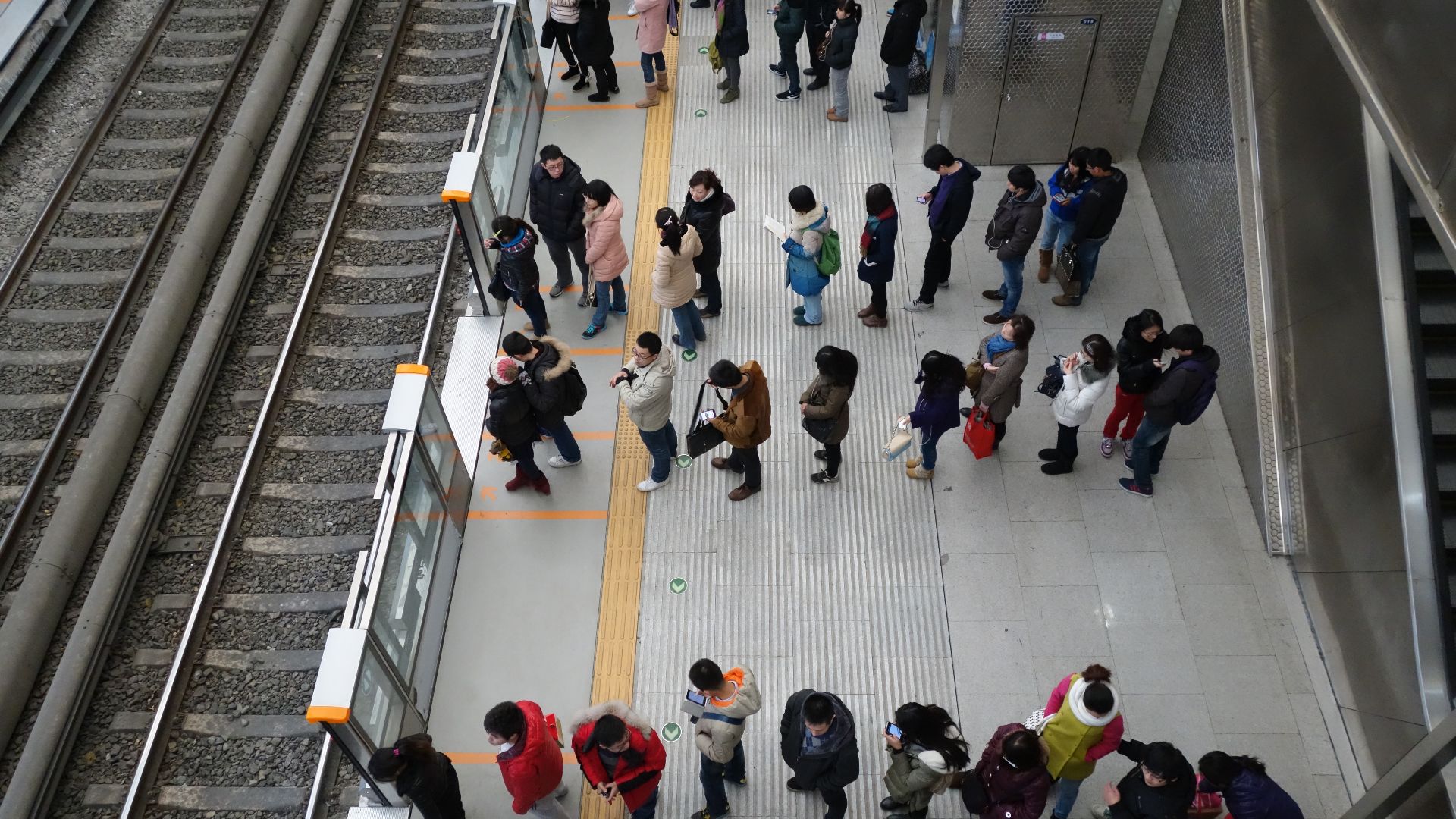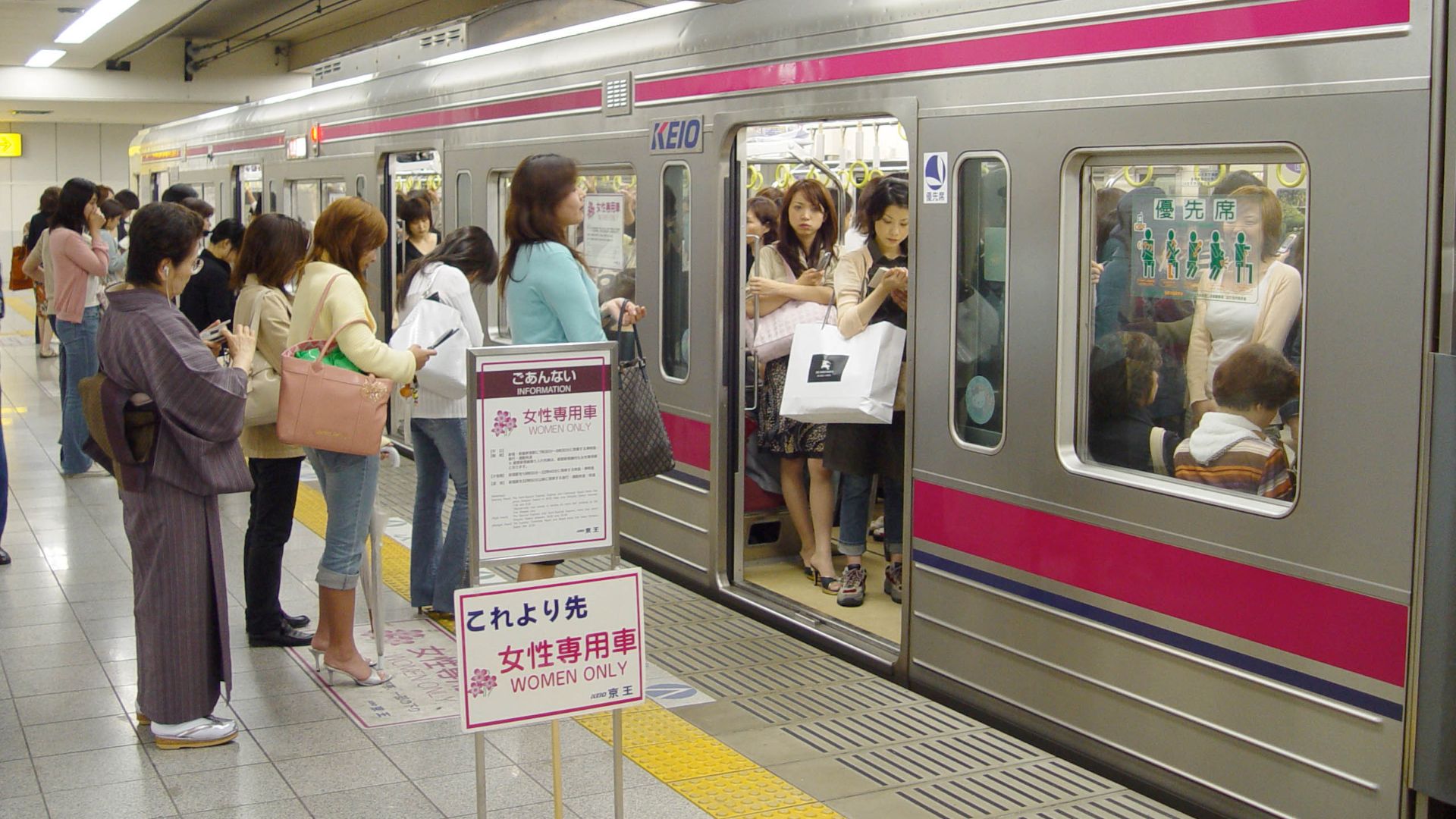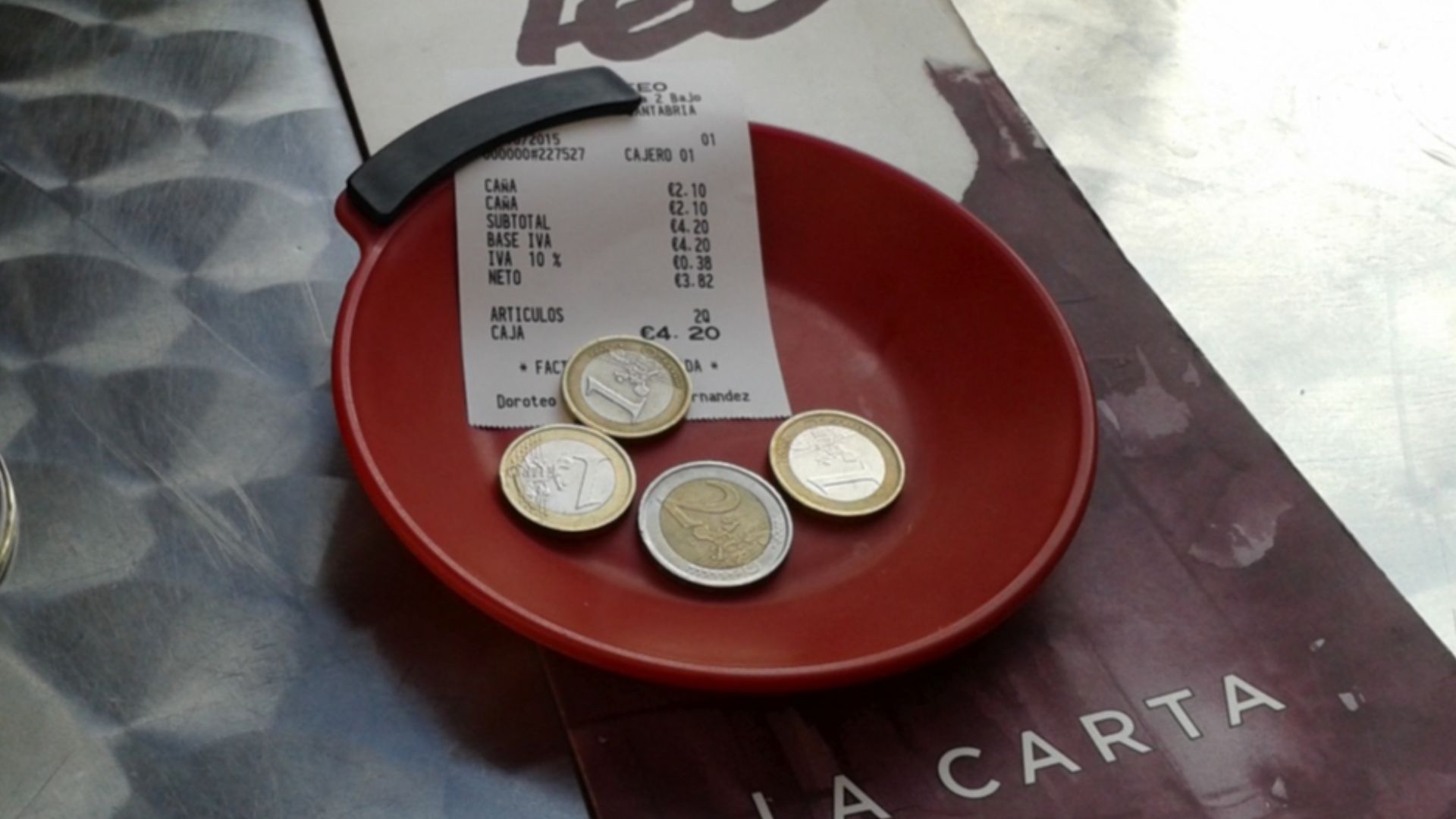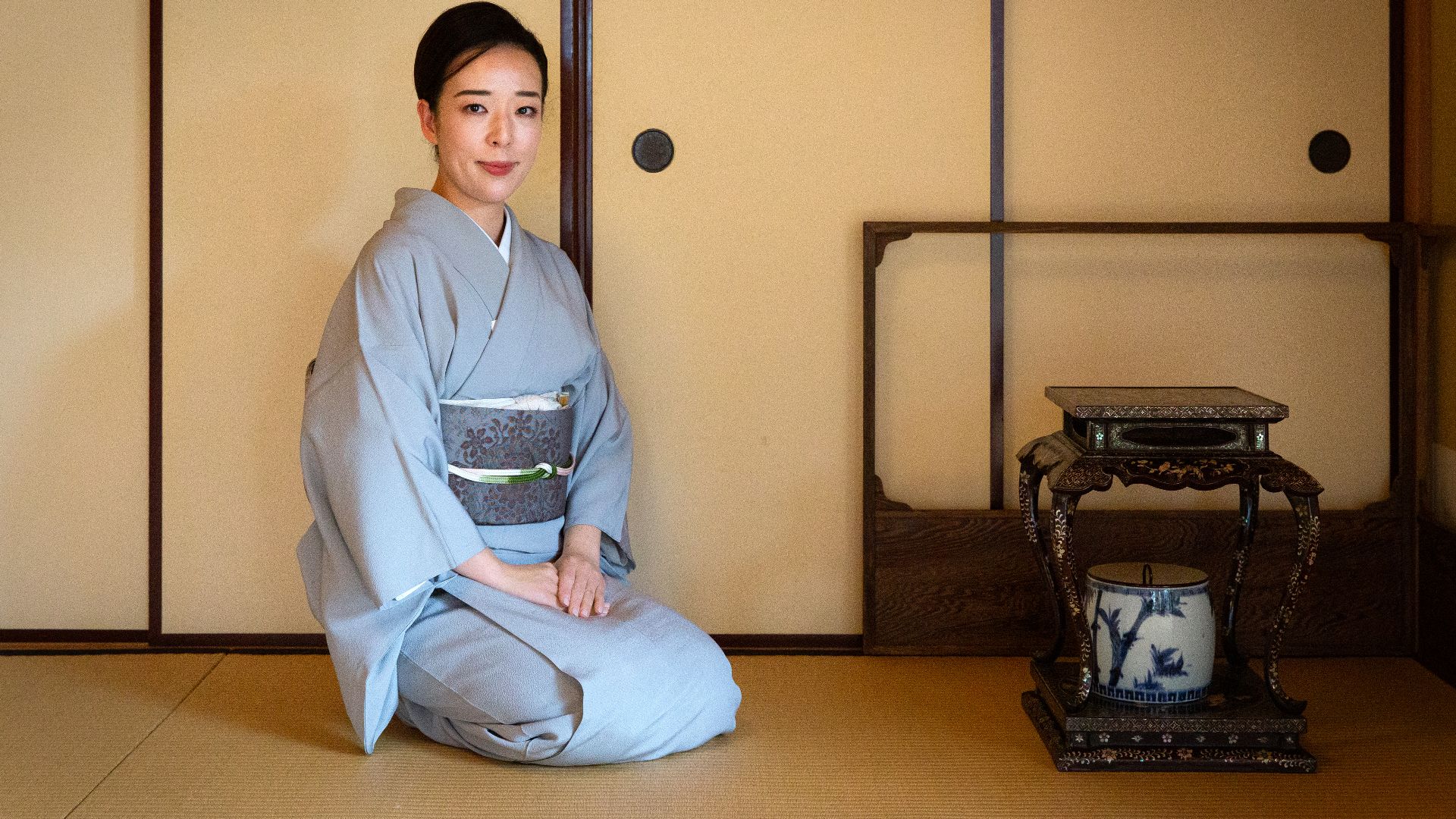Avoid Awkward Cultural Moments
Respect in Japan goes beyond saying please and thank you. It's woven into how you stand, sit, eat, and even speak in public spaces. Every gesture tells a story of consideration for those around you.

Be Punctual
Here, punctuality is a deeply rooted cultural value intertwined with respect, discipline, responsibility, and social harmony. Being exactly on time, or even a few minutes early, is expected in all aspects of daily life, whether for work, social events, or public transportation.
Be Punctual (Cont.)
The term for punctuality in Japanese, "Jikan genshu," means "strictly on time," underscoring how seriously it is taken. Historically, the importance of punctuality grew during Japan's modernization in the late 19th century, especially with the introduction of trains requiring precise schedules.
Bow Respectfully
Walk through any Tokyo department store and you'll witness an intricate ballet of bowing. Shop clerks dip their heads to customers, elevator operators bow as doors close, and even life-sized construction worker cutouts bow to passing traffic. This isn't mere politeness; it's “o-jigi”.
Bow Respectfully (Cont.)
“O-jigi” is a complex social language with over a dozen distinct variations. The depth and duration of your bow communicates everything from casual acknowledgment (15-degree bend) to deep respect (45-degree formal bow). The more formal the situation, the deeper and longer the bow should be.
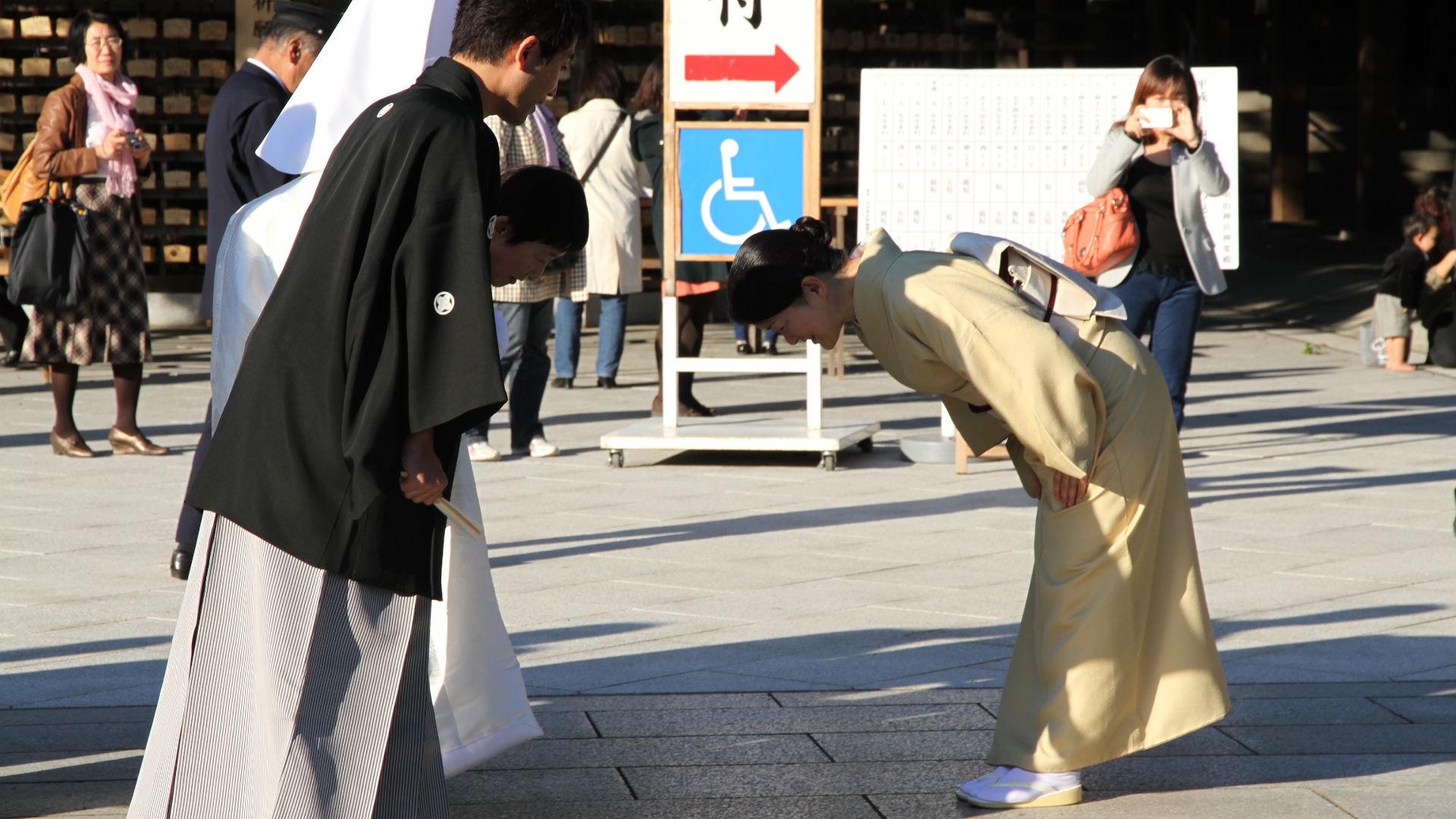 Maya-Anaïs Yataghène from Paris, France, Wikimedia Commons
Maya-Anaïs Yataghène from Paris, France, Wikimedia Commons
Use Serving Chopsticks For Shared Plates
In Japan's communal dining culture, sharing food is an art form governed by unspoken rules that maintain hygiene and show respect for others. When dishes arrive at your table meant for the group, there will be dedicated serving chopsticks (called "toribashi") placed alongside them.
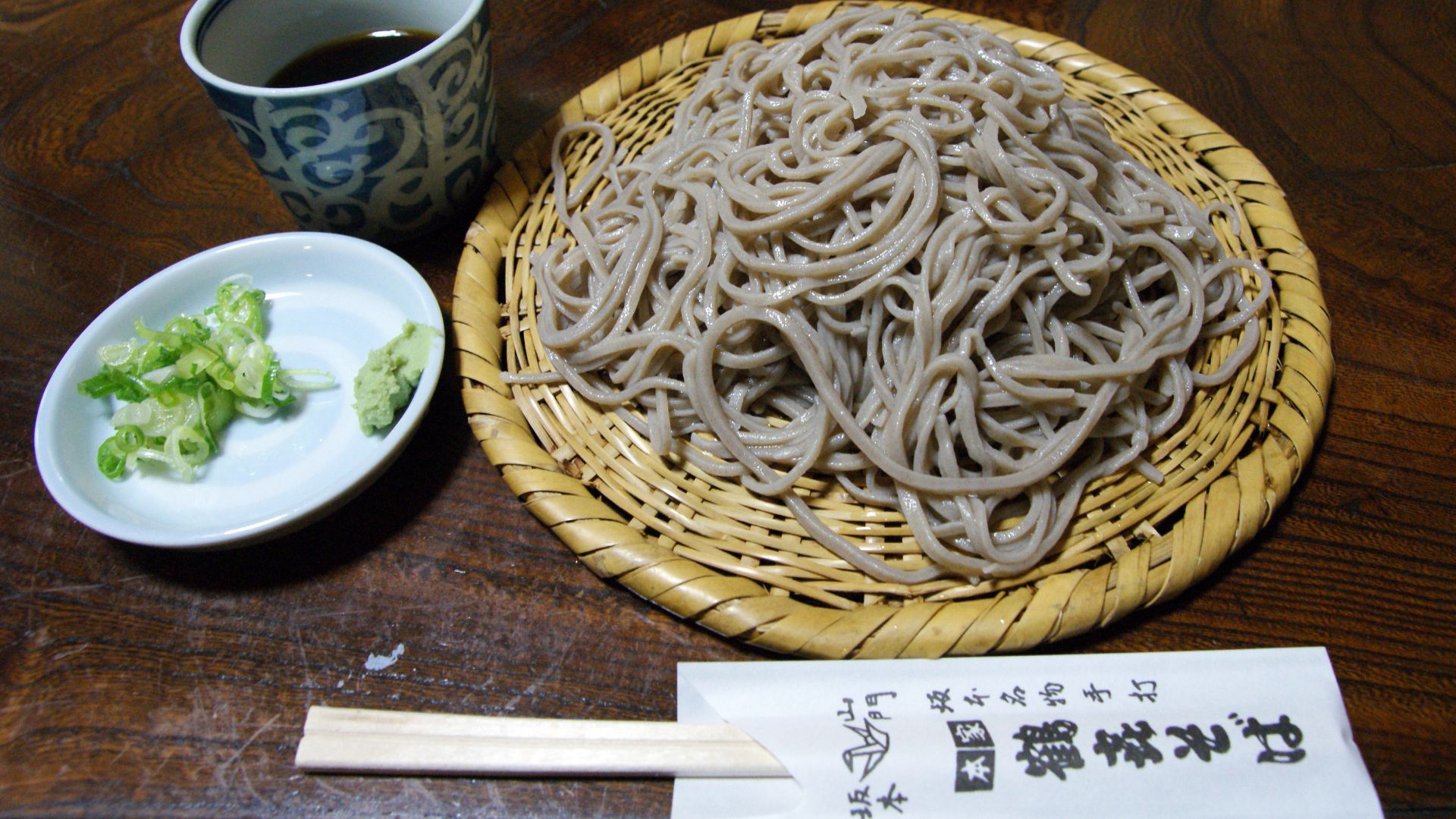 663highland, Wikimedia Commons
663highland, Wikimedia Commons
Use Serving Chopsticks For Shared Plates (Cont.)
These are your tools for transferring food to your personal plate. If no serving utensils are provided, Japanese etiquette dictates using the clean, opposite end of your personal chopsticks, never the end that has touched your mouth. This practice became even more significant during the COVID-19 pandemic.
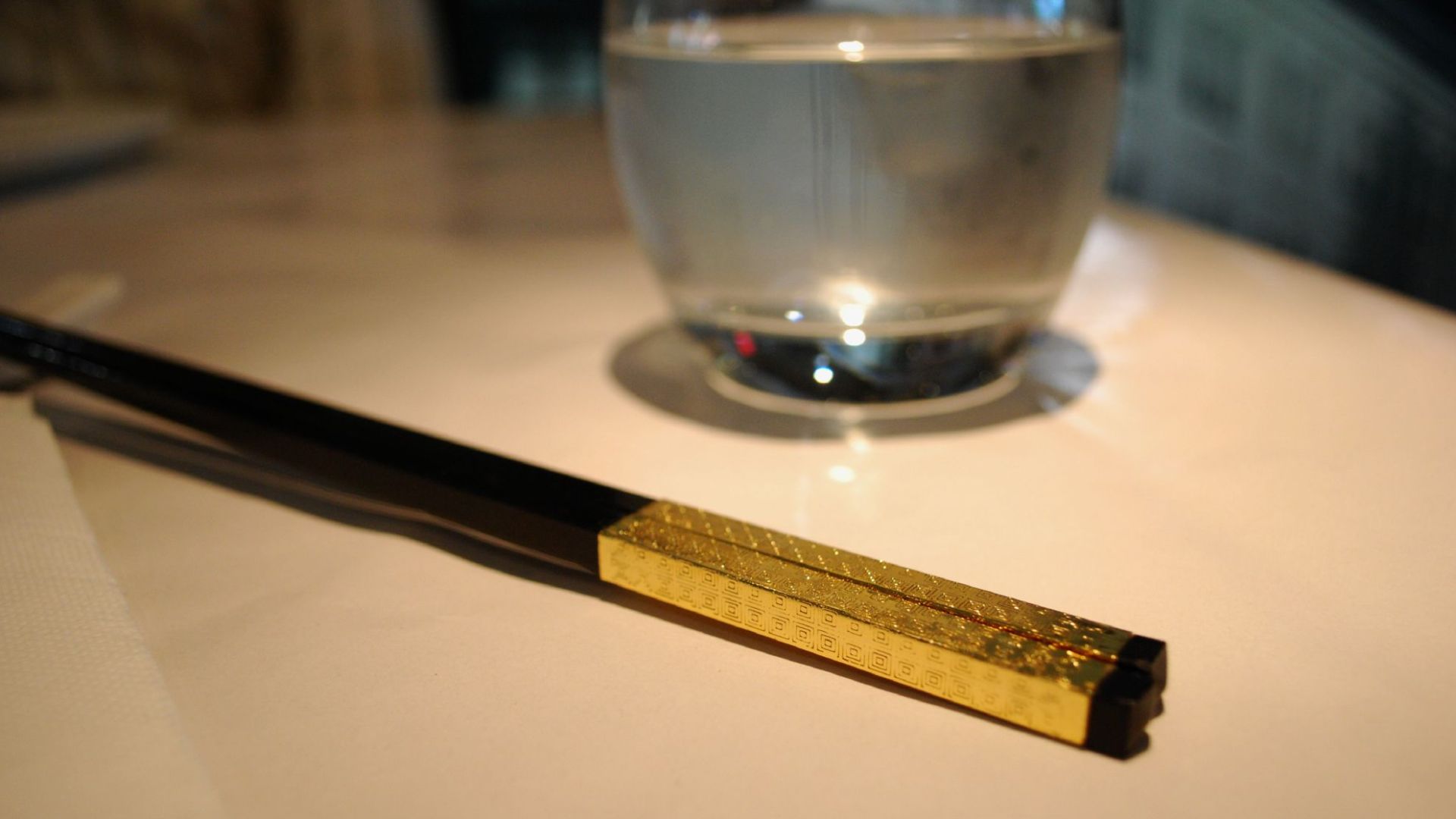 Alpha from Melbourne, Australia, Wikimedia Commons
Alpha from Melbourne, Australia, Wikimedia Commons
Keep Quiet On Public Transport
Even on a packed Tokyo rush-hour train carrying more than 3 million daily passengers, there exists something almost supernatural—near-complete silence. It's a deeply ingrained social contract that prioritizes collective comfort over individual expression. Phone conversations while travelling are strictly taboo.
Keep Quiet On Public Transport (Cont.)
Hence, phones should be kept on silent mode, and urgent calls should be handled in hushed whispers behind cupped hands. Even casual conversation should be kept to whispers. As per sources, this culture of consideration extends to headphone volume as well.
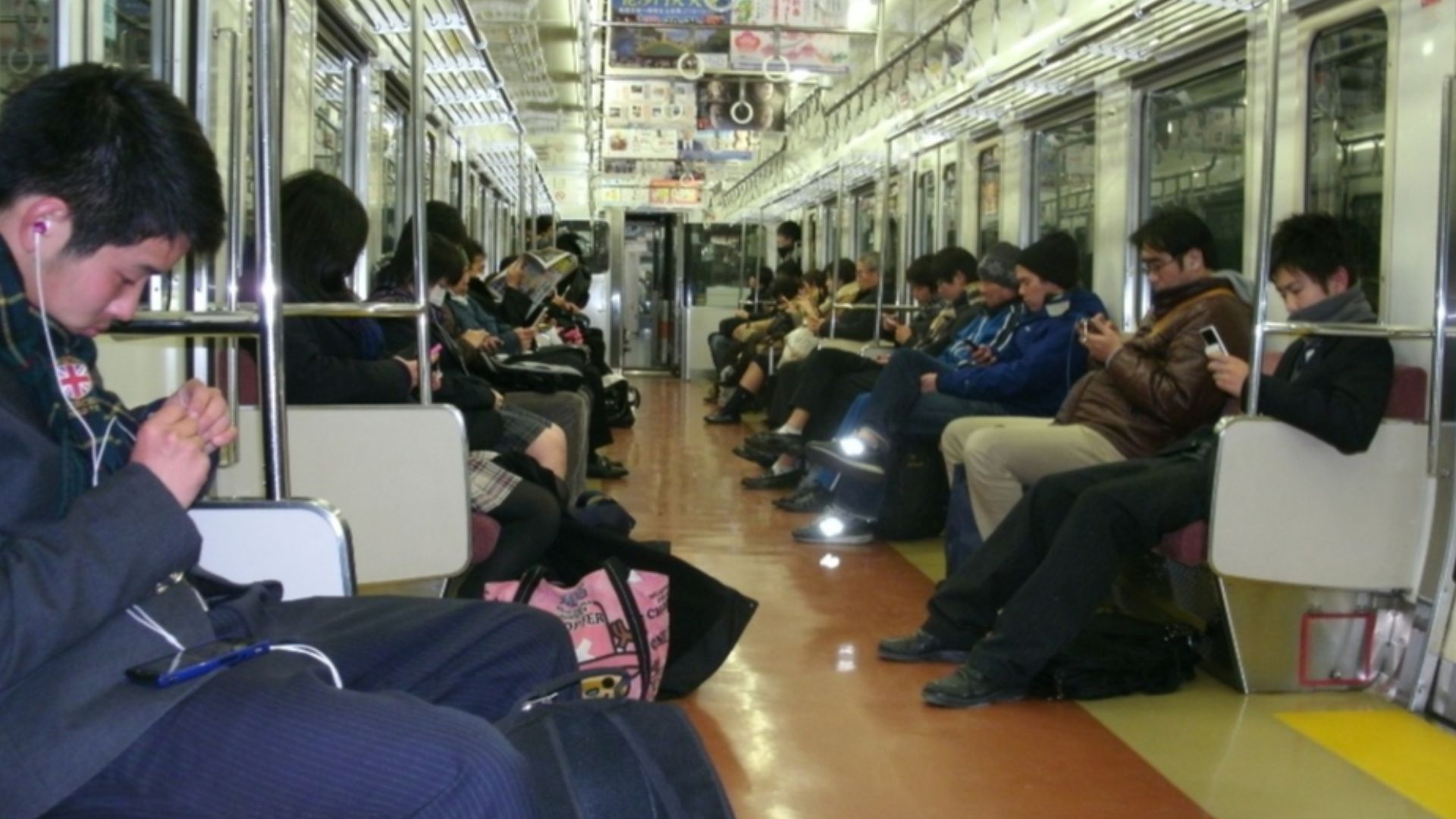 Viktor Pinchuk, Wikimedia Commons
Viktor Pinchuk, Wikimedia Commons
Remove Shoes Indoors
The moment you step into a Japanese home, temple, or traditional restaurant, you'll encounter rows of neatly arranged footwear by the entrance. This practice comes from ancient beliefs about spiritual purity and the practical need to keep tatami mats clean, as outdoor shoes can damage the rice-straw floors.
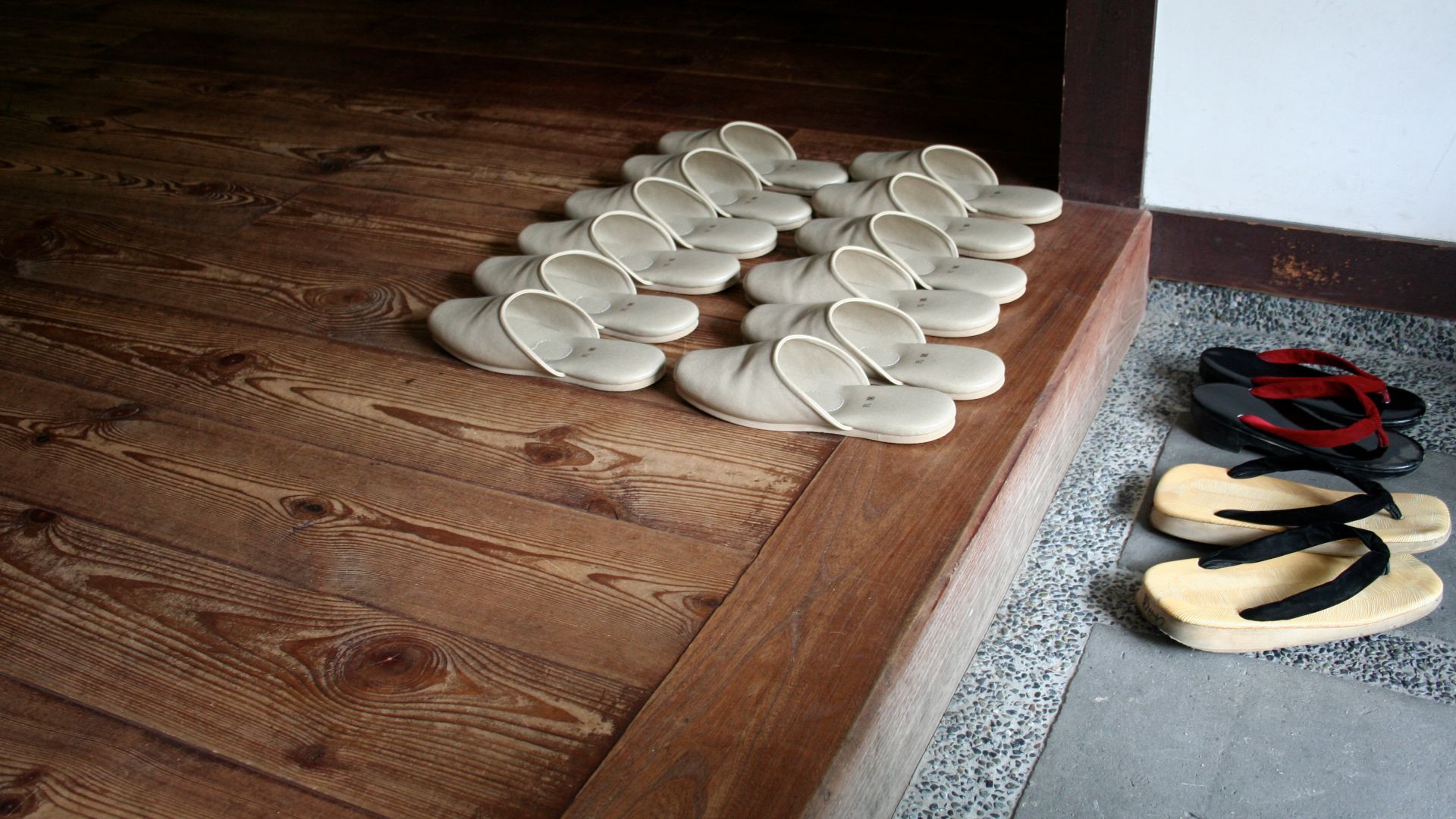 Richard W.M. Jones, Wikimedia Commons
Richard W.M. Jones, Wikimedia Commons
Remove Shoes Indoors (Cont.)
Modern Japanese homes maintain this tradition religiously, with designated areas called "genkan" serving as transitional spaces between outside and inside worlds. The rule is simple: if you see shoes lined up or small lockers by the entrance, it's time to slip off your footwear.
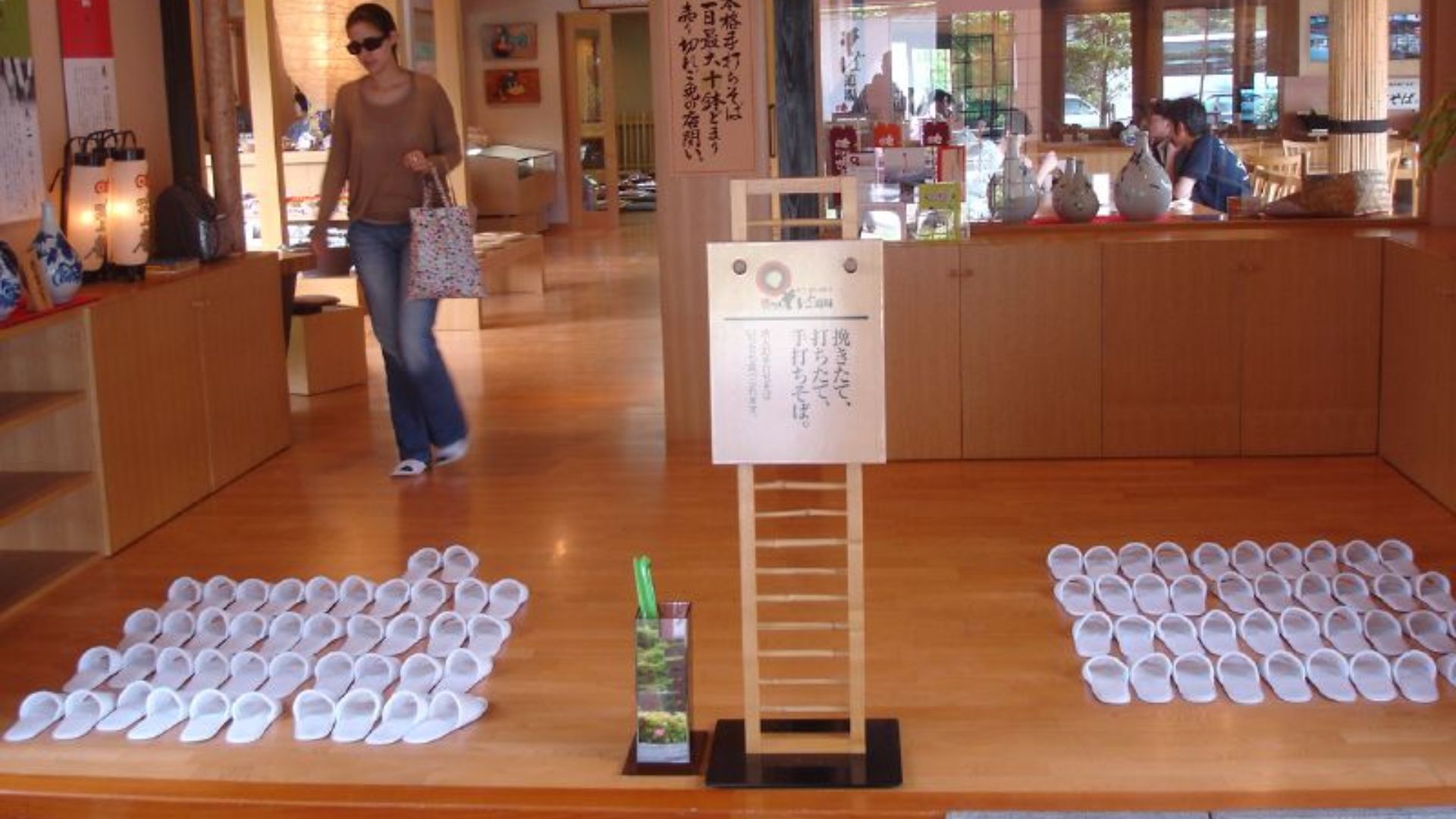 David Lisbona, Wikimedia Commons
David Lisbona, Wikimedia Commons
Wait In Line Properly
There's a fascinating psychology behind Japan's legendary queuing culture that goes far beyond simple politeness. It's rooted in the concept of "wa" (harmony) that has governed Japanese society for over a millennium. During cherry blossom season, people witness the ultimate test of this patience.
Wait In Line Properly (Cont.)
Thousands queue for hours just to glimpse famous sakura spots, yet retain perfect order without a single security guard in sight. The Japanese have refined the art of queuing with designated floor markings, numbered tickets, and even apps that track wait times at popular ramen shops.
Don't Tip Service Staff
Here's where Western visitors often commit their most well-intentioned cultural blunder: leaving money on the table after exceptional service. Note that such a gesture can be genuinely offensive, suggesting that the worker's salary is inadequate or that they need charity.
Don't Tip Service Staff (Cont.)
Japanese service philosophy, called "omotenashi," emphasizes heartfelt hospitality as a natural expression of pride, not something requiring additional compensation. The no-tipping culture runs so deep that there are stories of restaurant staff chasing tourists down the street to return "forgotten" money.
Wash Before Entering Hot Springs
You must be completely clean before touching the communal waters. This isn't a suggestion, it's an absolute law rooted in both hygiene and spiritual purification dating back over 1,000 years to when hot springs were considered sacred healing waters blessed by kami (spirits).
 Photo By: Kaboompics.com, Pexels
Photo By: Kaboompics.com, Pexels
Say "Itadakimasu" Before Eating
Before any meal in Japan, you will always hear a collective chorus of "itadakimasu" (pronounced ee-tah-dah-kee-mas), a phrase that literally translates to “I humbly receive”. This is a spiritual acknowledgment of the life that was taken to create the meal.
 PeopleImages.com - Yuri A, Shutterstock
PeopleImages.com - Yuri A, Shutterstock
Say "Itadakimasu" Before Eating (Cont.)
It also honours the farmers who grew the ingredients, and the chef who prepared the dish. Buddhist and Shinto influences merge in this simple expression of gratitude. The ritual extends beyond words to include a slight bow and the bringing together of palms in a prayer-like gesture.
Don't Blow Your Nose In Public
While sniffling might sound annoying to Western ears, in Japan it's infinitely preferable to the alternative—publicly blowing your nose, which ranks among the country's strongest social taboos. The practical solution involves constant sniffling until you can reach a private bathroom or secluded area.
Avoid Eating While Walking
The streets of this country tell a fascinating story about self-discipline and social consideration through a straightforward observation. Nobody eats while strolling. This practice, called "tabearuki," is considered poor manners rooted in centuries-old beliefs about mindful consumption and respect for food.
Avoid Eating While Walking (Cont.)
Modern Japan has adapted this rule with practical flexibility. People usually finish their purchases near vending machines or standing outside convenience stores before continuing their journey. Ice cream represents the main exception to this rule, particularly during festivals or at tourist attractions.
Accept And Give With Both Hands
Using both hands signals that you’re fully engaged and are treating the exchange with seriousness. For instance, business cards (meishi) should always be presented and received with both hands, ensuring the card faces the recipient the right way.
Use Moistened Towels For Hands Only
Another interesting point is that the moistened towel provided at restaurants, called an "oshibori," is strictly intended for cleaning your hands only before you start eating. It is poor etiquette to use the oshibori to wipe your face, mouth, or any other body part.
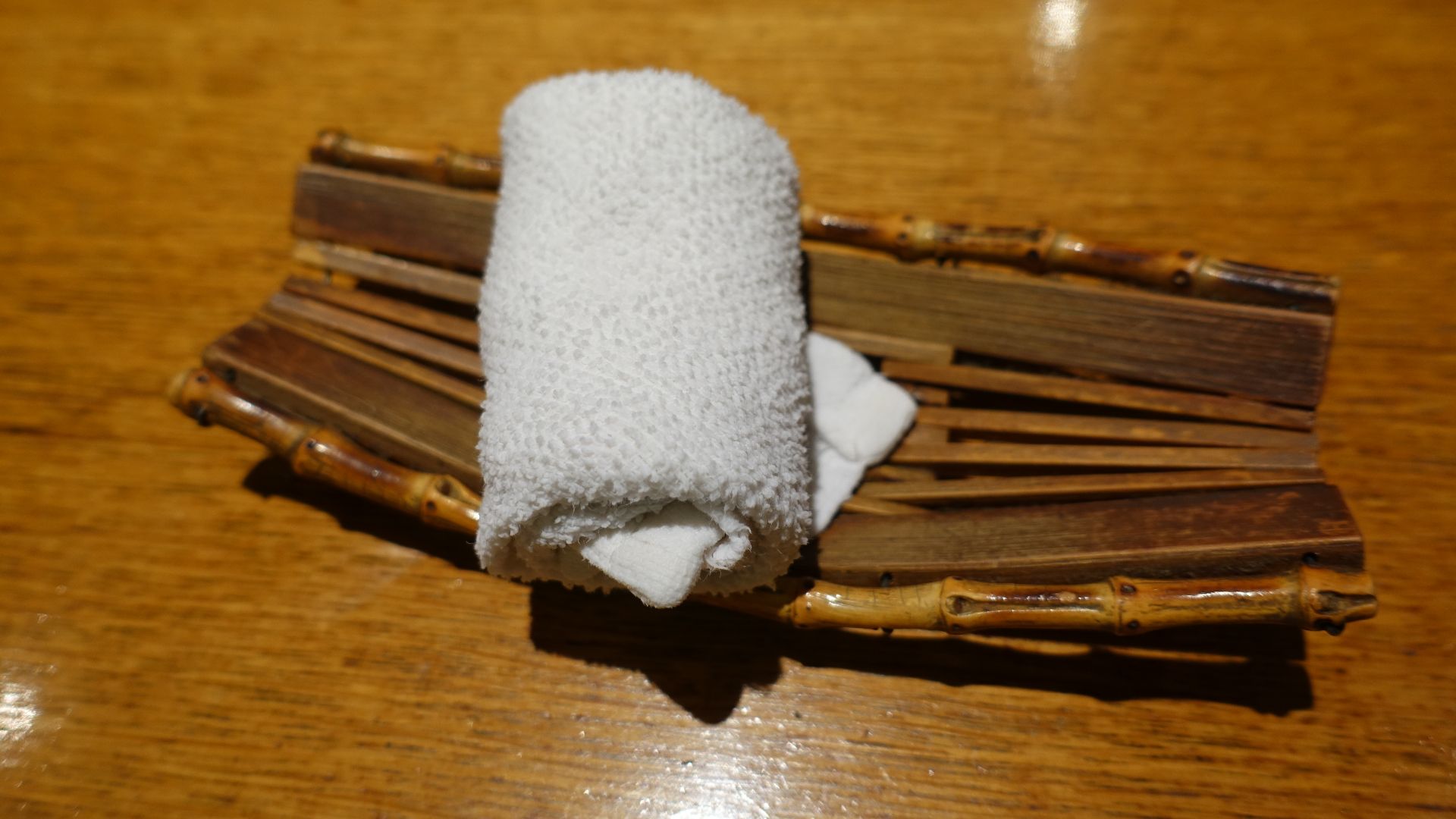 Guilhem Vellut from Paris, France, Wikimedia Commons
Guilhem Vellut from Paris, France, Wikimedia Commons
Use Moistened Towels For Hands Only (Cont.)
If you must freshen up your face, it is better to use tissue paper or a personal handkerchief, or go to the bathroom to dab your face. Some Japanese men might occasionally wipe their faces with the oshibori, but this is not common and is considered bad form.
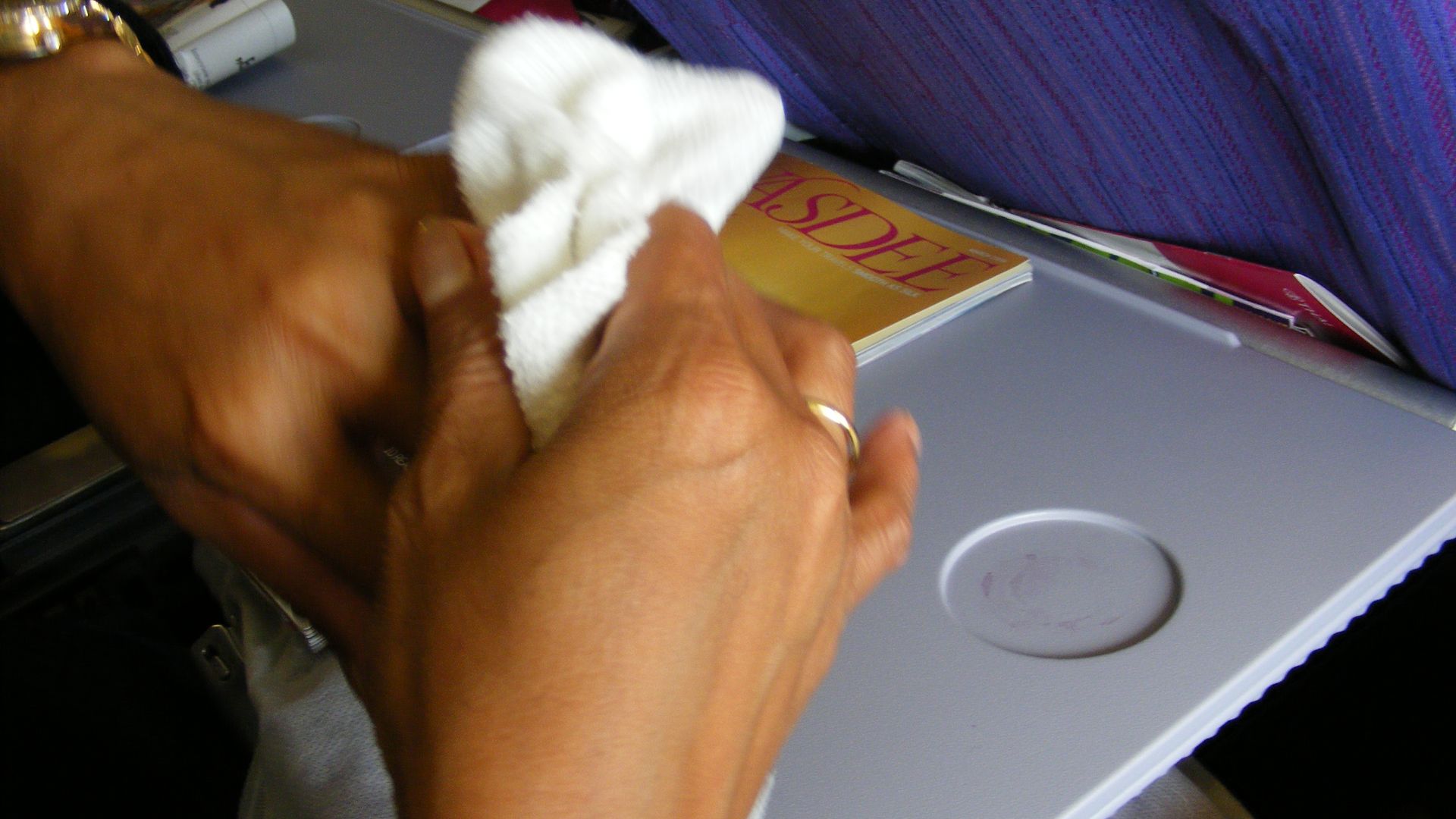 User:Mattes, Wikimedia Commons
User:Mattes, Wikimedia Commons
Carry Trash With You
It is expected that you carry your trash with you until you find an appropriate place to dispose of it, such as back at your accommodation or a designated trash bin. Public trash cans are rare in many public spaces, hence visitors often need to manage their waste carefully.

